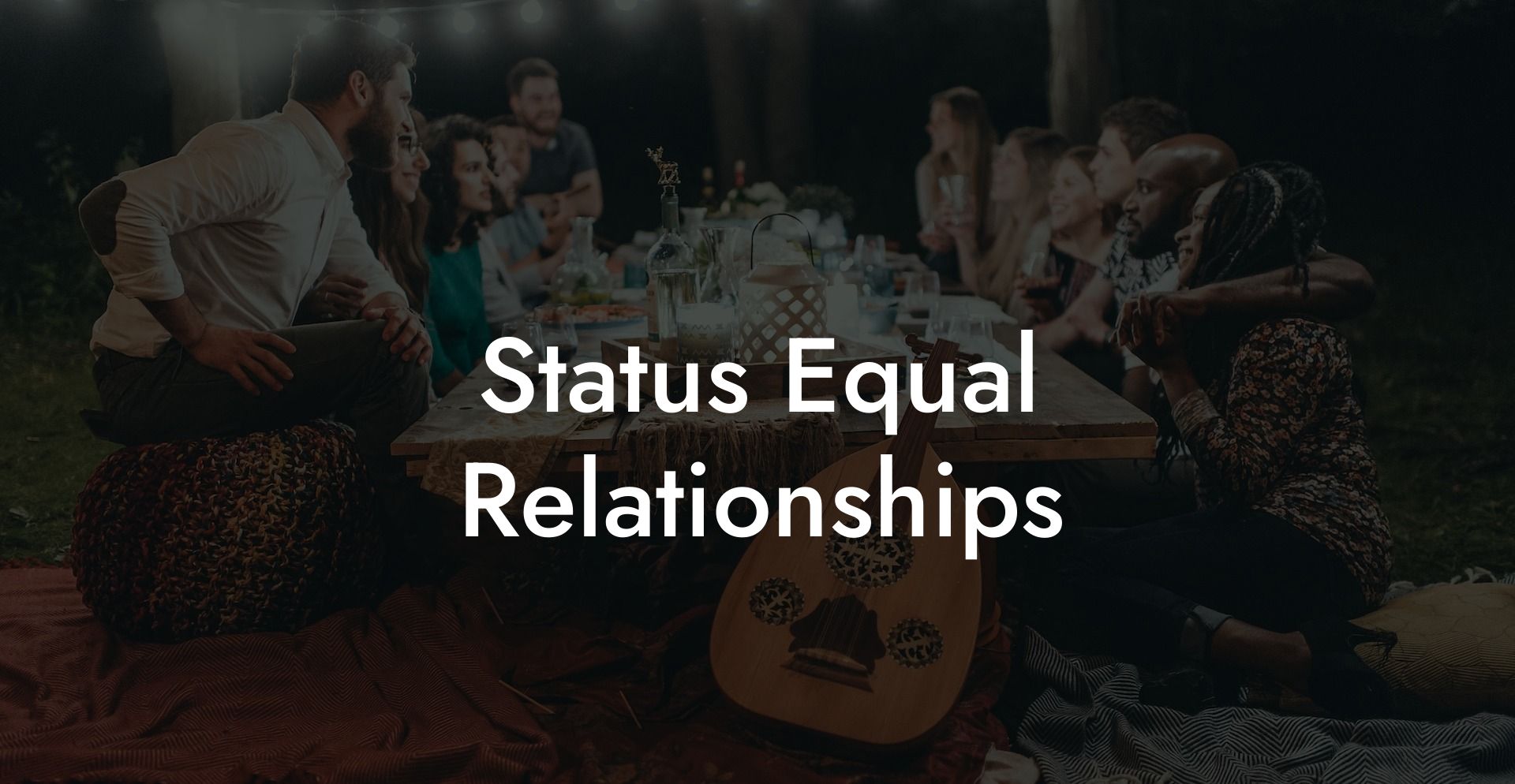In today's complex world of relationships, understanding the dynamics and nuances of status equal relationships is essential in creating a healthy connection with your partner. Explore the concept of status equality and how you can apply it to your relationship to achieve harmony and balance between partners.
Status Equal Relationships Table of Contents
What are Status Equal Relationships?
Status equal relationships are partnerships in which both individuals hold an equal status or power within the relationship. This balance can be achieved in numerous ways, such as through open communication, shared decision-making, and mutual respect for one another’s autonomy and boundaries.
Importance of Status Equality in Relationships
- Shared power and decision-making: In a status equal relationship, both partners' opinions and desires are valued. This leads to more balanced decision-making in which both individuals have an equal say and feel heard.
- Improved communication: When there is a balance of power in a relationship, communication becomes more open and honest, as each person feels comfortable expressing their feelings and desires without fear of retribution or dismissal.
- Enhanced respect: Status equality fosters mutual respect, as each partner acknowledges the other's individuality and autonomy. This creates a foundation of trust and understanding in the relationship.
- Better conflict resolution: With status equality, partners approach conflict from a place of shared responsibility. This enables more constructive discussions, leading to healthier conflict resolution and strengthening the relationship.
Achieving Status Equality in Your Relationship
Open and Honest Communication
Effective communication is the cornerstone of a successful status equal relationship. To achieve this:
- Listen actively to your partner and make a conscious effort to understand their perspective.
- Express your emotions and needs honestly without fear of judgment or criticism.
- Practice empathy and validate each other's feelings, even if you disagree.
Shared Decision-Making
Status equality depends on both partners feeling empowered to voice their opinions and participate in the decision-making process:
- Discuss major decisions together, ensuring that both perspectives are heard and considered.
- Work towards collaborative solutions that benefit and satisfy both parties.
- Find a balance in decision-making; ensure both partners have an equal say and avoid making unilateral decisions.
Maintaining Boundaries
Establishing and respecting boundaries is essential for maintaining status equality:
- Identify and communicate your own personal boundaries, as well as your boundaries within the relationship.
- Respect your partner's boundaries, and expect them to respect yours in return.
- Negotiate compromises when boundaries conflict, prioritizing the well-being of both parties.
Status Equal Relationships Example:
Sarah and James have been dating for a year. While they feel compatible in many aspects, they both agreed on achieving status equality in their relationship. To achieve this, they decided to hold weekly conversations about their feelings, opinions, and desires, providing a space for open communication. In these discussions, they actively listen to each other, validate emotions, and consider each other's viewpoint when making decisions affecting the relationship.
Recently, they came across a major decision: whether to move in together. They discussed the pros and cons of living together and examined their financial situations. James expressed concerns about losing his personal space, while Sarah was worried about the commitment level. Together, they negotiated boundaries and established some ground rules for cohabitation, respecting each other's emotions and opinions.
Understanding and embracing status equal relationships can greatly improve the quality of your partnership, leading to a more balanced, respectful, and harmonious connection. By prioritizing open communication, shared decision-making, and boundary setting, couples can achieve a level of equality that strengthens the foundation of their relationship. Don't forget to share this valuable insight with others and explore more guides on The Monogamy Experiment to further enhance your understanding of relationships today.













